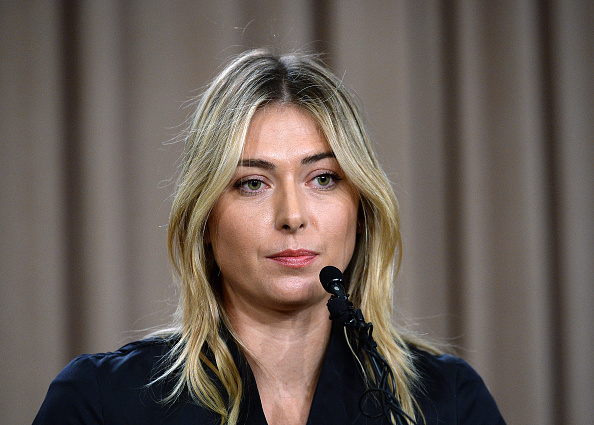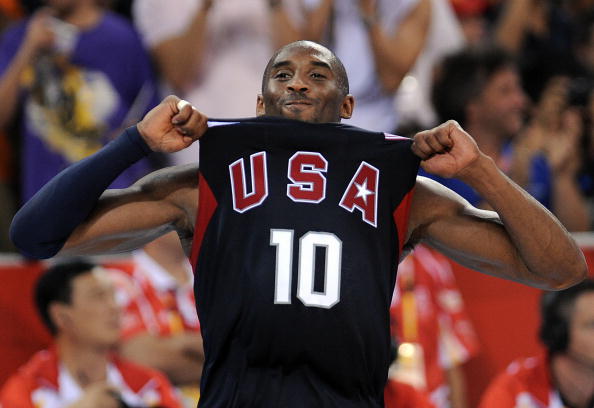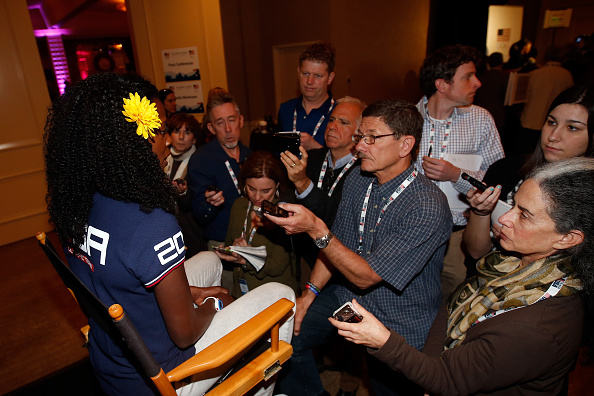The mind wanders as our friends at the U.S. tax agency, the Internal Revenue Service, prepare to say thanks ever so much for the notion of taxes being the mark of civilization, or something. In that spirit, here are 10 things to think about: 1. You want to get serious, really serious, in the anti-doping campaign? Let’s see governments step up their financial support of the World Anti-Doping Agency. WADA's annual budget is roughly $26 million. For comparison, that’s annual revenue of the sort the university athletic departments at Texas-San Antonio or New Hampshire work with, according to a USA Today survey. Let’s see what might happen were WADA to run with money along the lines of annual athletic department revenues at Oregon ($196 million), Texas ($161 million) or Michigan ($157 million), the top three in that survey. And here’s a telling stat: Ohio State’s athletic department received more in donations than WADA’s entire budget — $28.2 million of its $145.2 million annual revenue.
2. Who believes the tennis star Maria Sharapova? Really? With now more than 100 positive tests for meldonium in all kinds of sports?
3. You hear over and again that the role of anti-doping agencies is to protect the rights of clean athletes. If that’s true: how do you bar the entire Russian track and field team from Rio when, presumably, some on that team are clean?
4. They open the Main Press Center in Rio. But — is this a sign of how these Games are going to go — the press isn’t allowed in to cover the opening?
5. Outside the 1992 Dream Team, is Kobe Bryant — whose last game as a Los Angeles Laker is Wednesday — the most important figure in USA Basketball’s Olympic history? Or is it Doug Collins, with those clutch free throws at the 1972 Games? Or — who?
6. With apologies to the creators, who purportedly have “poured their hearts and souls into their designs,” all four would-be Tokyo 2020 emblems are legitimately terrible. One looks like the conflation of hallucinogenic mushrooms and someone’s brain (“D,” “flowering of emotions”). One of the Paralympic logos evokes — unfortunately — nothing so much as Donald Trump’s hair (“B,” “connecting circle, expanding harmony”). Please, can the soulful designers keep at it?
https://twitter.com/Tokyo2020/status/719824639204012032
7. It is now a year since SportAccord imploded. Isn’t it time to acknowledge the obvious — that Marius Vizer was right? Disagree all you want — if you want — with the way he said what he said. But who quarrels with the substance?
8. The Australian swim Trials just went down. Look out, Rio: 21-year-old Cameron McEvoy went 47.04 to win the men’s 100, the fastest time ever in a textile suit. That is just 13-hundredths outside Brazilian Cesar Cielo’s world record of 46.91, set at the plastic suit-dominated 2009 world championships in Rome. Check out a video of the race:
REPLAY: Here it is again, @CameronMcEvoy's record breaking swim. Don't blink or you'll miss it. #7Olympics https://t.co/17u7zsRLEN
— 7Olympics (@7olympics) April 11, 2016
9. Alysia Montaño, the U.S. 800-meter runner, went off at the recent U.S. Olympic Committee media summit, saying, “Once a doper, always a doper.” Then, when asked by the veteran Chicago-based sports writer Philip Hersh if Justin Gatlin and Tyson Gay — both of whom have served time for doping — should be allowed to compete in Rio, she said, "No.”
Besides the sweet team spirit that ought to engender, there’s this: what about the notion of redemption? Further, doping matters tend to be complex; they do not necessarily lend themselves to a binary, all-black or all-white, sort of resolution. At issue, typically, are different — 50? — shades of grey. If it’s one thing for Athlete X or Y to do time for, say, illicit steroid use, what about the case of LaShawn Merritt, the U.S. 400-meter champion, who was busted for ExtenZe, a different sort of performance enhancer? He bought ExtenZe at a neighborhood 7-Eleven. “I spent $6 and it cost me millions of dollars,” amid a 21-month suspension, Merritt once said. Putting aside the legal formalities and the practical realities — these include double jeopardy concerns and human rights considerations noted by tribunals in rejecting the idea of most lifetime bans — there are moral and ethical matters, too: on what grounds should Merritt be out forever? Answer: none.
10. The underlying big-picture purpose of the Olympic movement is to move the world, little by little, day by day, toward peace. What does it say about the terrible, awful disconnect in our broken world when a teen-age suicide bomber blows himself up at a boys’ soccer game in Iraq? What, if anything, is sport to do when sport itself becomes the target? The death toll: 43, 29 of them boys who had been playing in the game or watching their friends. “It was a children’s soccer game. Of course he knew he was going to kill children,” said a local sheikh. Please read this harrowing account from the Washington Post. Then ask: how do we — all of us with a conscience — stop our children from killing and being killed?






